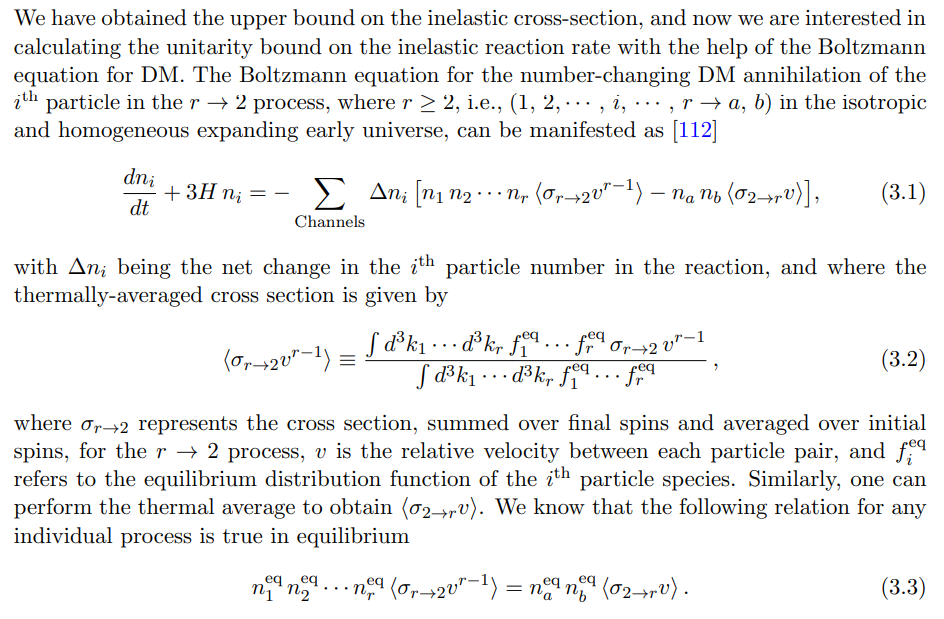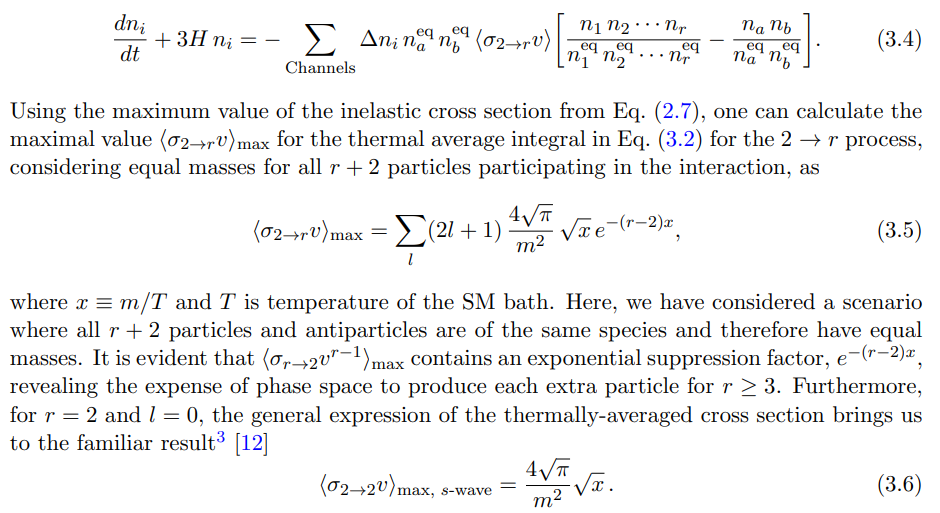This paper is available on arxiv under CC 4.0 license.
Authors:
(1) Nicolas Bernal, New York University Abu Dhabi;
(2) Partha Konar, Physical Research Laboratory;
(3) Sudipta Show, Physical Research Laboratory.
Table of Links
- Abstract and Intro
- S-matrix: Unitarity and its Consequences
- Dark Matter Annihilation and Unitarity Bound
- Low-temperature Reheating
- Freeze-out with a Low-temperature Reheating
- Summary and Conclusion
- Acknowledgments and References
3. Dark Matter Annihilation and Unitarity Bound

Now, the Boltzmann equation boils down to the following simplified form

Now, we can obtain the maximum thermally averaged rate for the r → 2 process using Eq. (3.2), as

where g stands for the internal degrees of freedom of the DM. Therefore, the maximum value of the thermally averaged s-wave annihilation cross section for 3 → 2 can be written as

Likewise, one can also express the maximum value of the thermally average s-wave annihilation cross section for 4 → 2 as

[3] Although the expression of Eq. (3.5) is derived considering equal mass for all the particles involved in the interaction; it provides maximum thermally-averaged cross section for WIMPs in the case r = 2 where the mass of the final-state particles can be different from the same of the initial-state particles.
